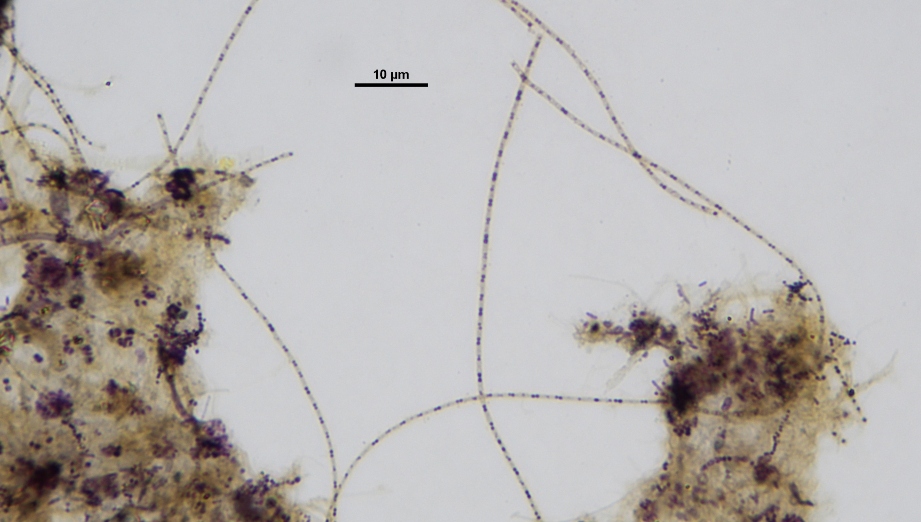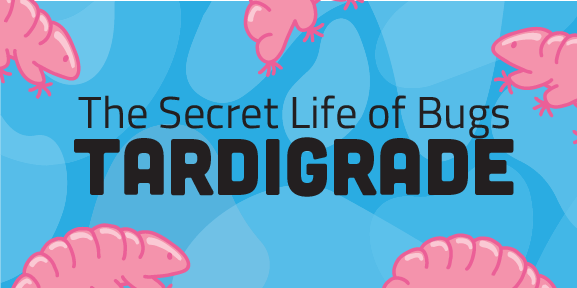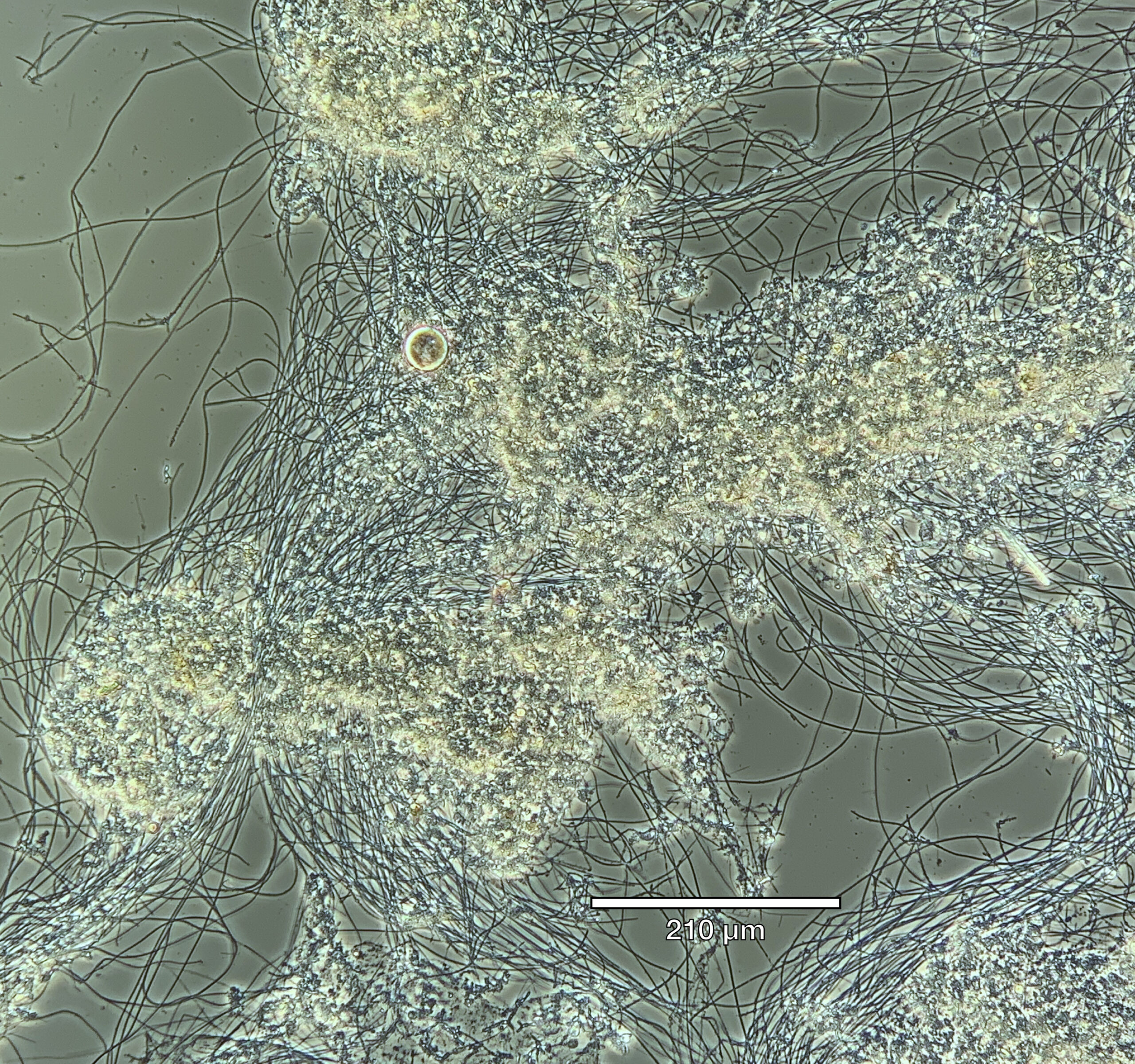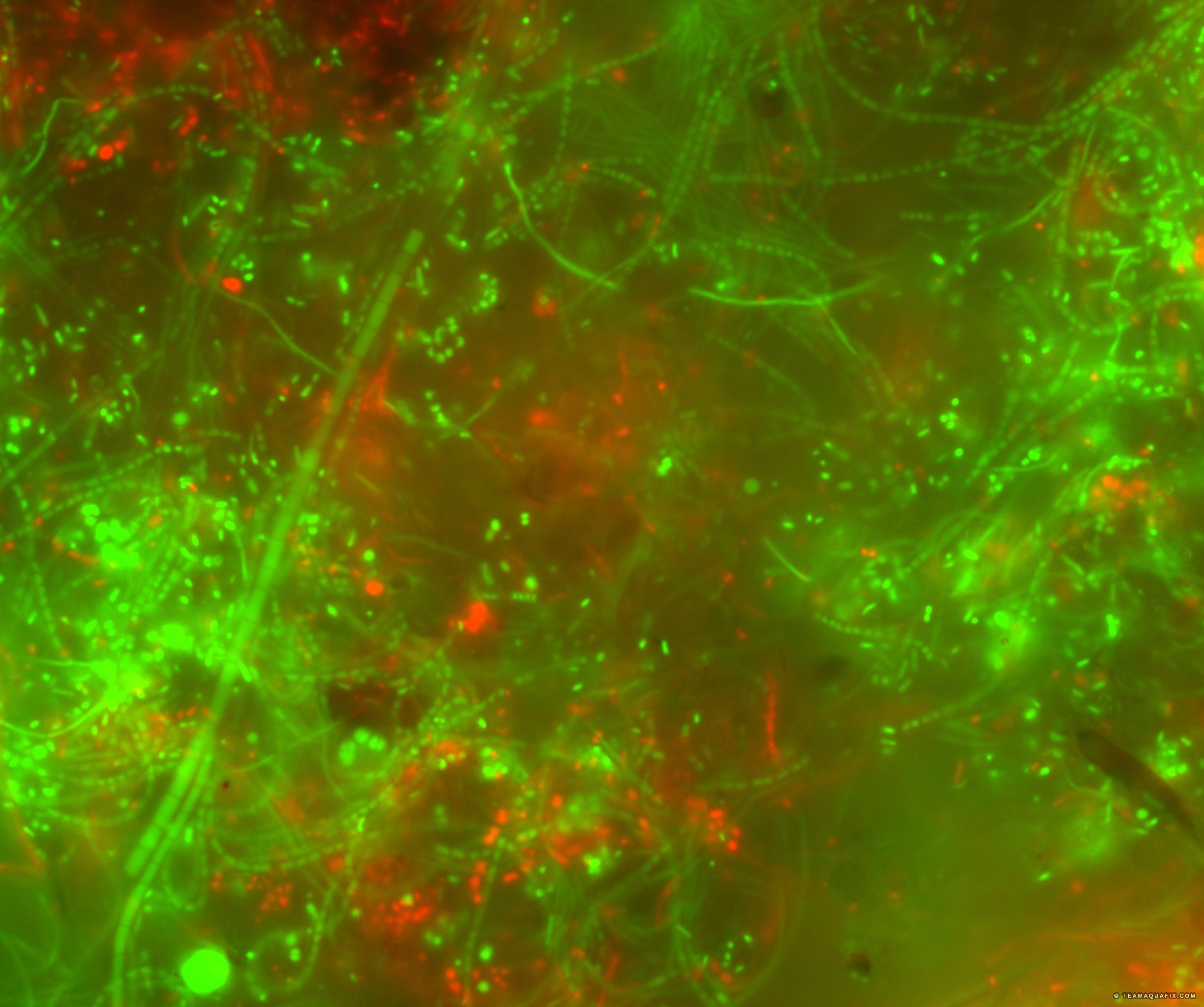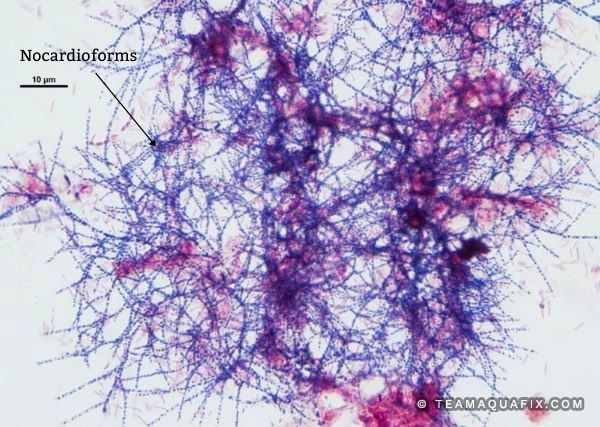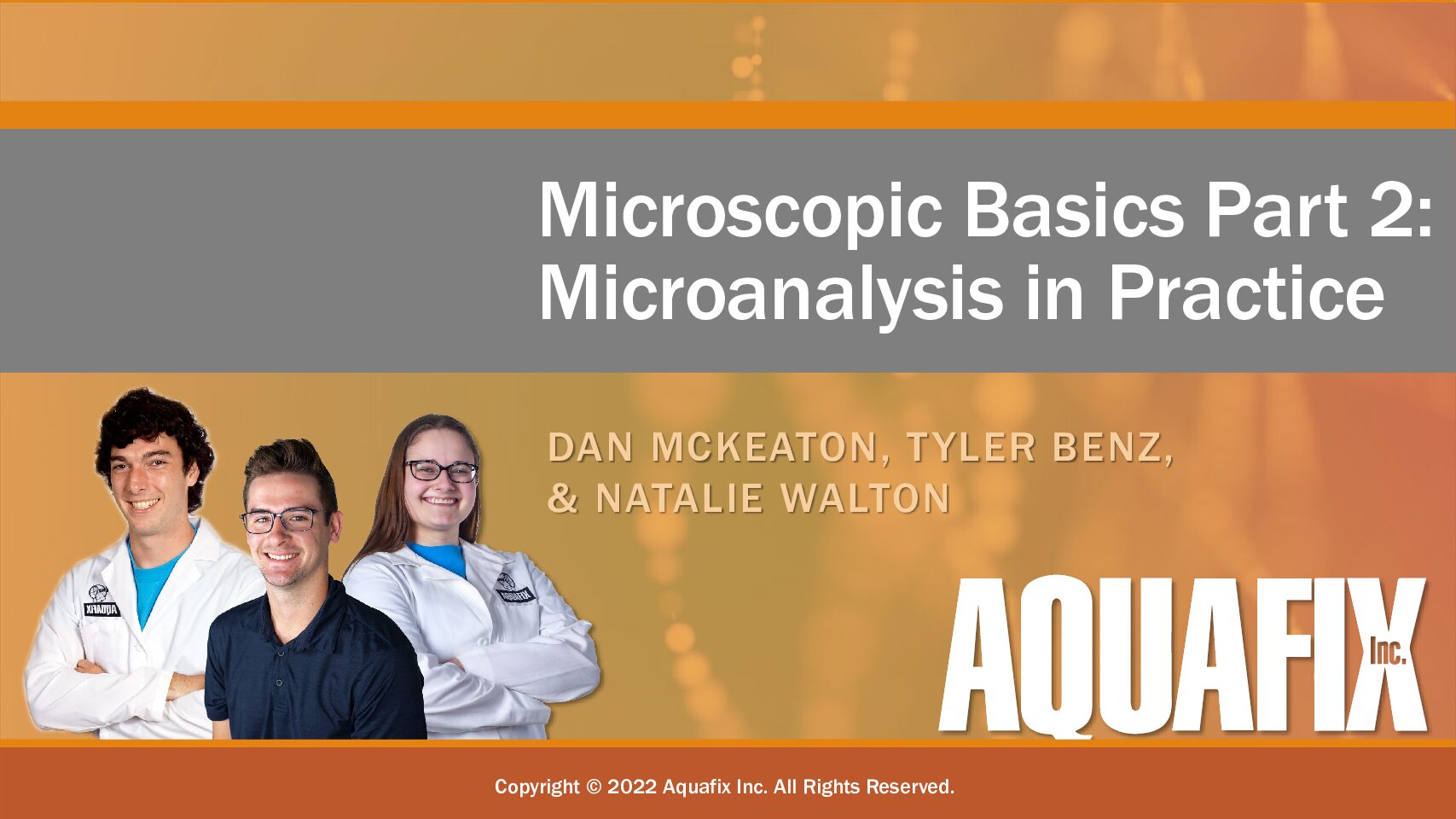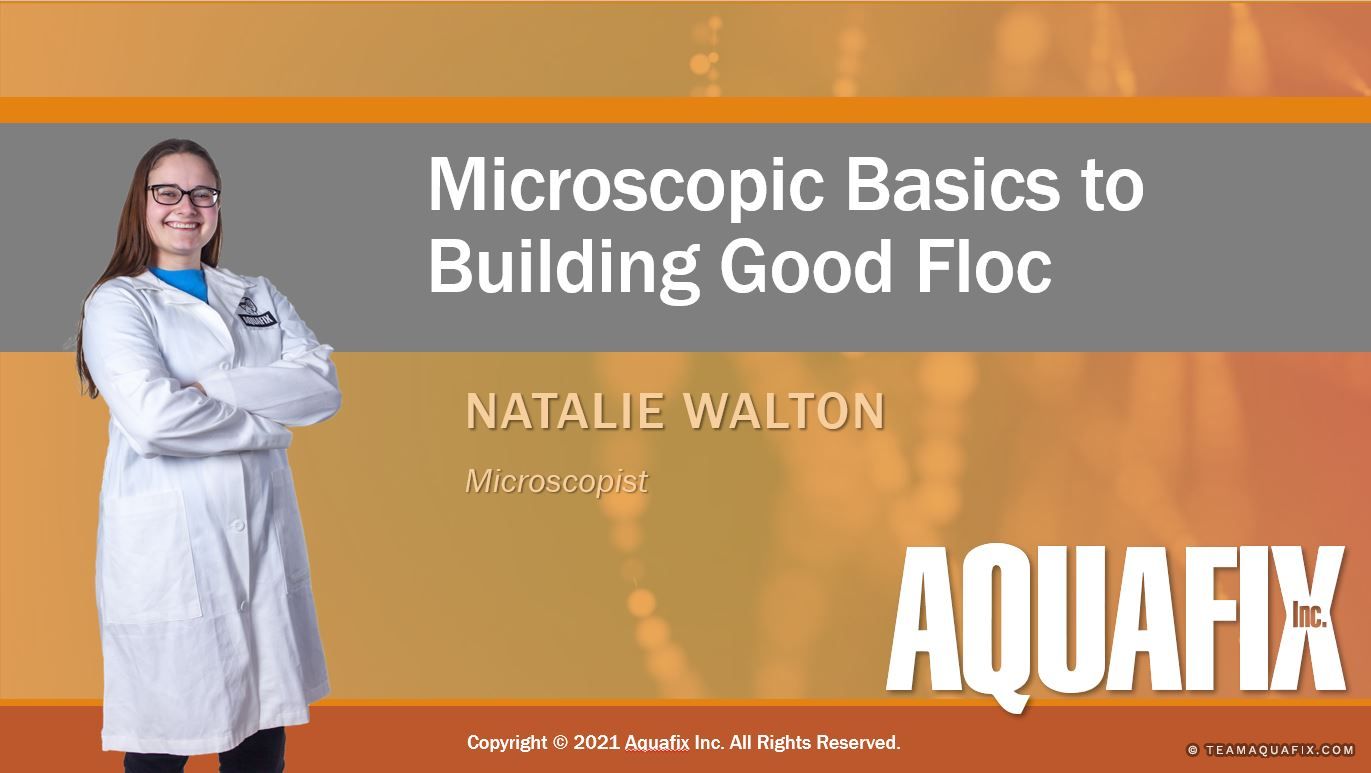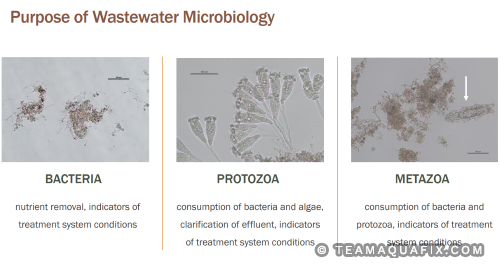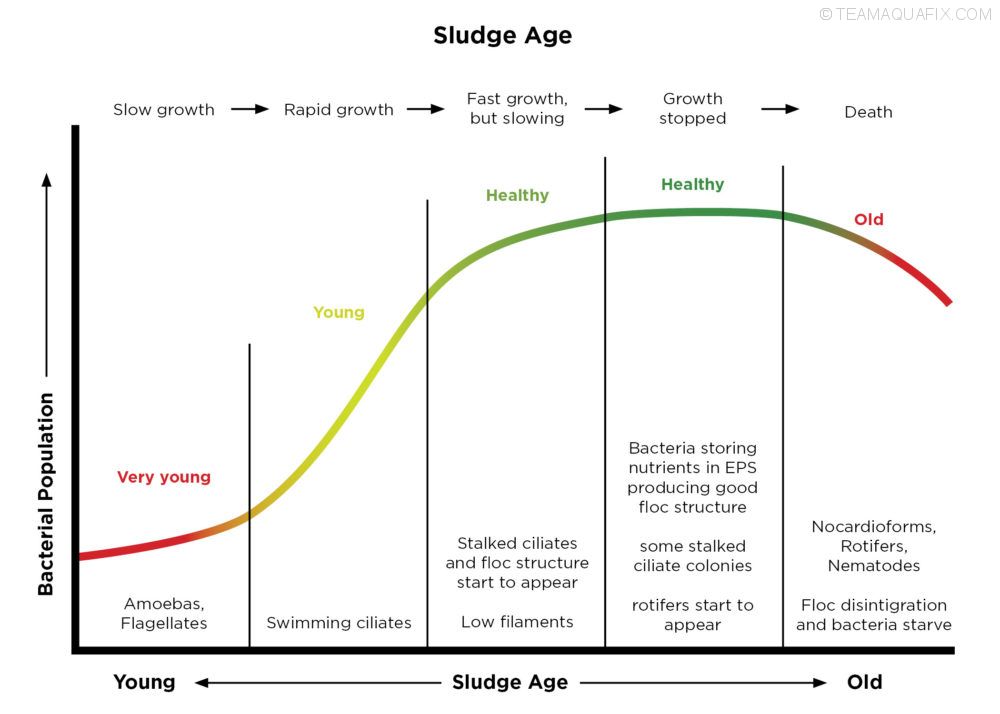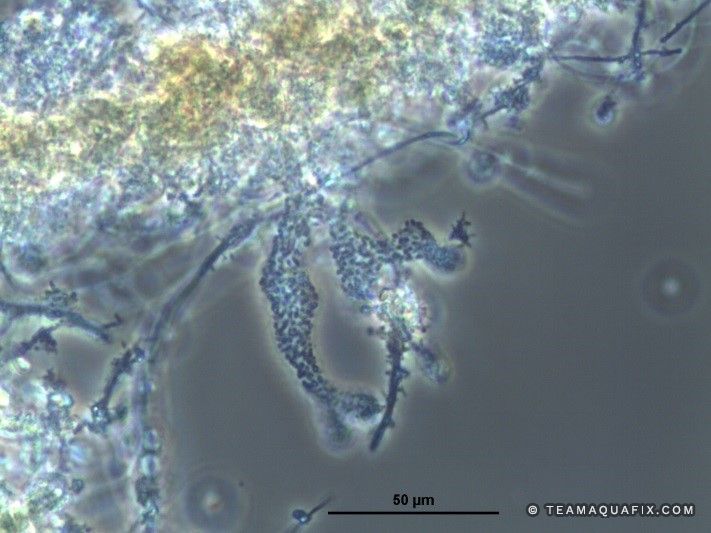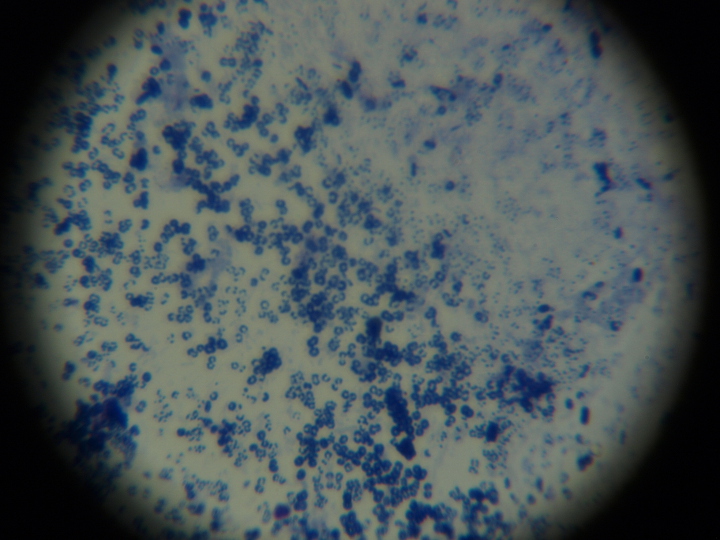The Secret Life of Bugs: Nicknames "Nicknames stick to people, and the most ridiculous are the most adhesive.” – Thomas...
Read More
Secret Life of Bugs: Suctoria
The Secret Life of Bugs: Suctoria The Vampire Organismby Natalie Walton, Aquafix MicroscopistSuctorians are one of the more interesting protozoa...
Read More
Filament ID and Microanalysis Techniques Webinar
Filament ID and Microanalysis Techniques Webinar by Dalton McGowan and Saylor GilbertTechnical consultant Dalton McGowan and research scientist Saylor Gilbert...
Read More
Microthrix Bulking In Summer
Microthrix Bulkingin Summer by Deborah Lee, MicrobiologistWhy do we care about Microthrix filaments? Usually, Microthrix parvicella is associated with foaming problems in...
Read More
Secret Life of Bugs : Water Mites
The Secret Life of Bugs: Water Fleas vs Water Mites A case of mistaken identity by Natalie Walton, Aquafix MicroscopistIn...
Read More
Secret Life of Bugs : Gastrotrich
The Secret Life of Bugs: Gastrotrich The Mastax of Disguiseby Natalie Walton, Aquafix MicroscopistDue to their pronged tail and general...
Read More
Secret Life of Bugs: Tardigrade
The Secret Life of Bugs: Tardigrade Is your plant a crime scene or are the tardigrades still alive?by Natalie Walton,...
Read More
Signs of Toxicity Under the Microscope
Microscopy is a powerful resource in helping to better understand your plant and providing signs that a toxic upset has...
Read More
Secret Life of Bugs Red Worms vs Tubifex Worms
The Secret Life of Bugs: Red Worms vs Tubifex Worms Worms make my skin crawl, but can you tell the...
Read More
Filament ID & Microanalysis Techniques
Filament ID & Microanalysis Techniques by Natalie Walton, Saylor Gilbert, & Tyler BenzIn this event, Lead Microscopist, Natalie Walton, Research...
Read More
Filament Takeover of Industrial Manufacturer
Filament Takeover ofIndustrial Manufacturer We were surprised to see the reason behind a plant's bulking and settling issuesby Saylor Gilbert,...
Read More
Secret Life of Bugs: Rotifers
The Secret Life of Bugs: Rotifers You won't believe what we were able to catch on camera.by Natalie Walton, Aquafix...
Read More
Biocides in Wastewater: Impacts of the Cold
Biocides in Wastewater: Impacts of the Cold by Dan McKeaton,Aquafix Laboratories Director of Wastewater EducationCold temperatures and biocides are two...
Read More
Wastewater Training – Nocardioforms & Microthrix
Nocardioforms & Microthrix: Key Drivers & Control by Natalie Walton, Dan McKeaton and Chris GroveIn this event, Aquafix Director of...
Read More
Nocardioforms & Nocardia Like Organisms
Nocardioforms vs Nocardia Like Organisms by Aquafix Microscopist, Natalie Walton.We like to stay up to date with what is going...
Read More
Webinar: Microscopic Basics in Practice
Microscopic Basics Part 2:Microanalysis in Practice by Dan McKeaton, Natalie Walton, and Tyler BenzIn this webinar, Aquafix Microscopist, Natalie Walton,...
Read More
Webinar: Microscopic Basics in Theory
Microscopic Basics Part 1:Theory & Background by Natalie WaltonIn this webinar, Aquafix MIcroscopist, Natalie Walton will provide an overview of...
Read More
Webinar: Microscopic Basics to Building Good Floc
In this webinar, Aquafix Microscopist, Natalie Walton will provide an overview on common microscopic evaluations, and what they mean. For...
Read More
Webinar: Protozoa, Metazoa, and Building Good Floc
In this webinar, Aquafix Aquatic Biologist, Michael Frett will dive into common microscopic evaluations, and what they mean. For additional...
Read More
2019 Webinar: Wastewater Microbiology Basics
In this wastewater microbiology webinar, Aquafix Biologist, Michael Frett gives an overview of common microscopic evaluations, and what they mean....
Read More
“Bulking” de Zoogloea
Si los filamentos no son la causa del “bulking” en su planta, es probable que es la bacteria llamada Zoogloea...
Read More
Treating Biofouling and Mycobacterium in MBR Systems
Membrane Bioreactors or MBRs are like sheets of fabric (membranes) that filter wastewater with the aid of suspended solids. As...
Read More




